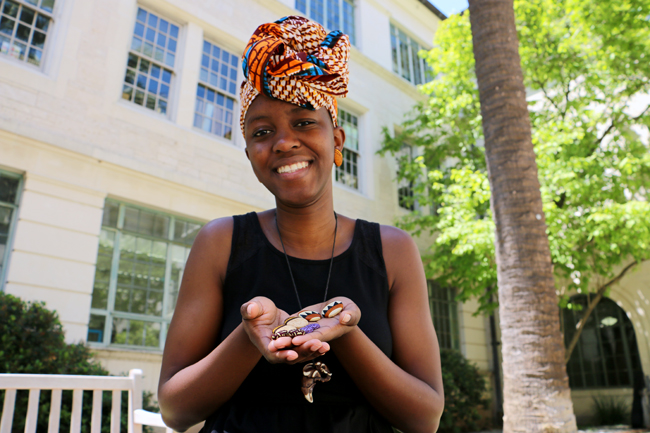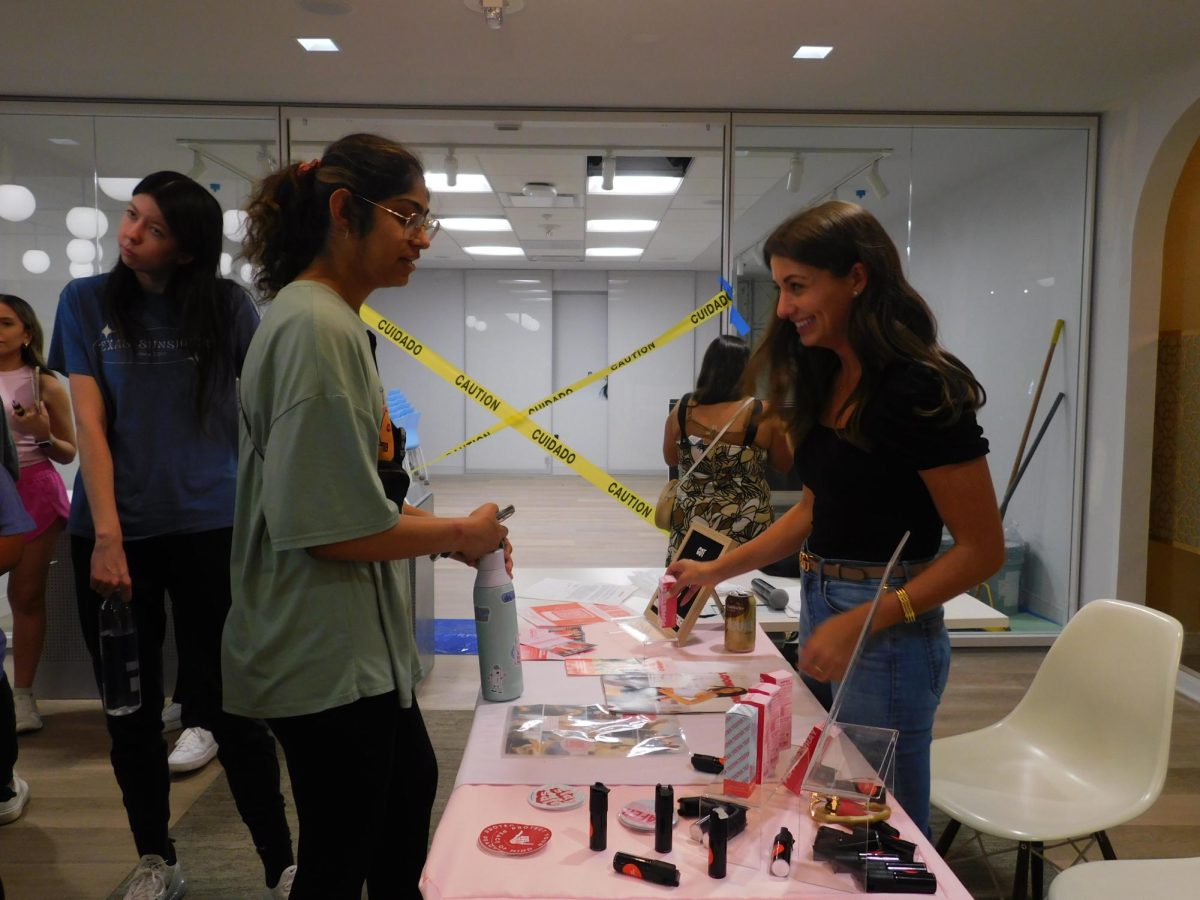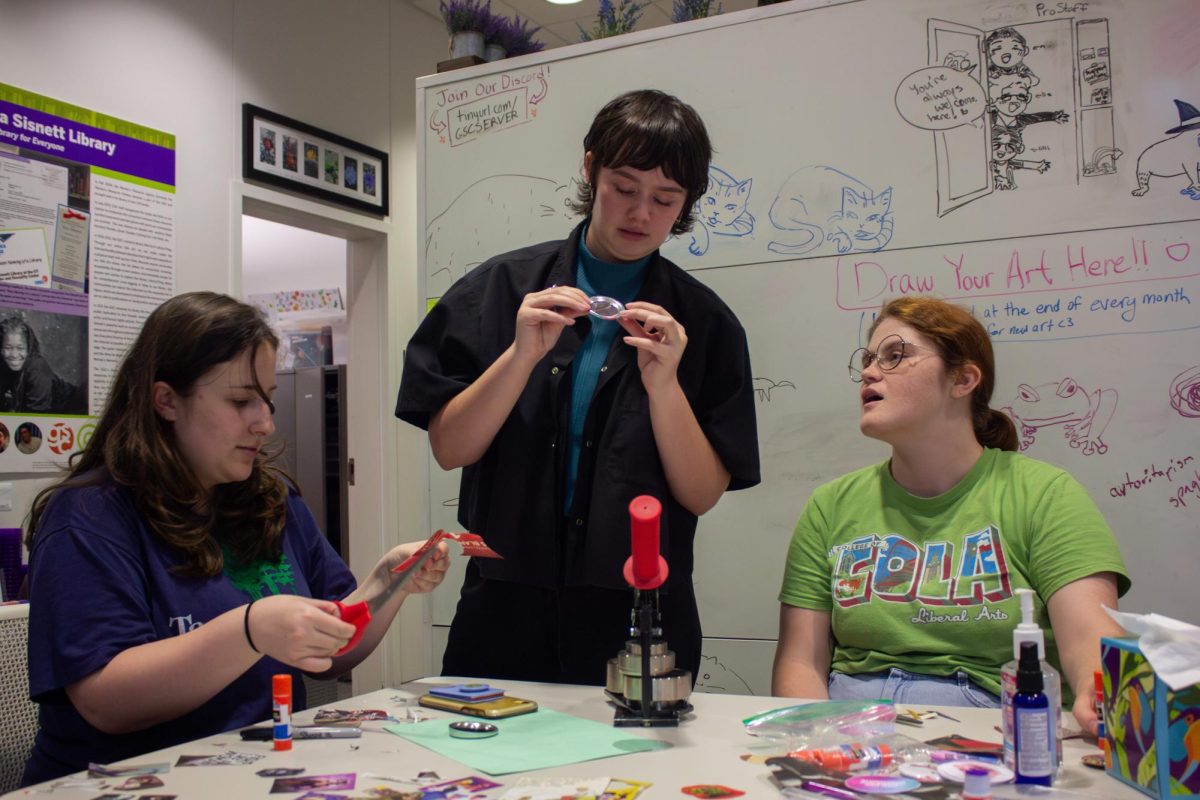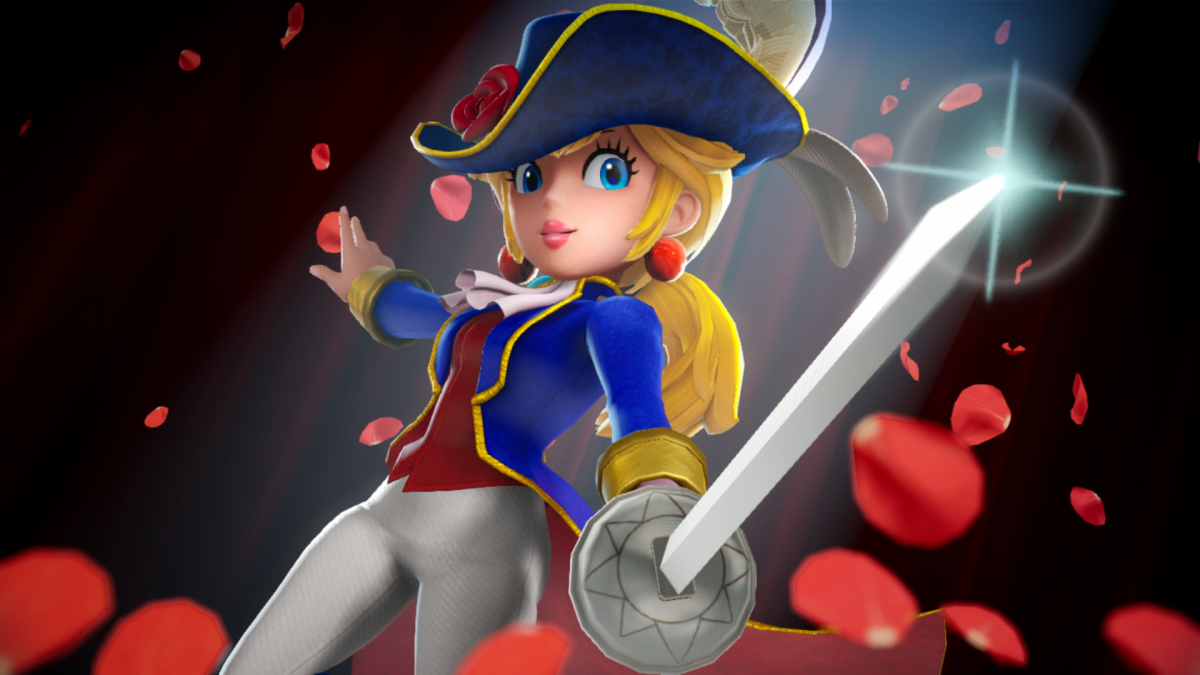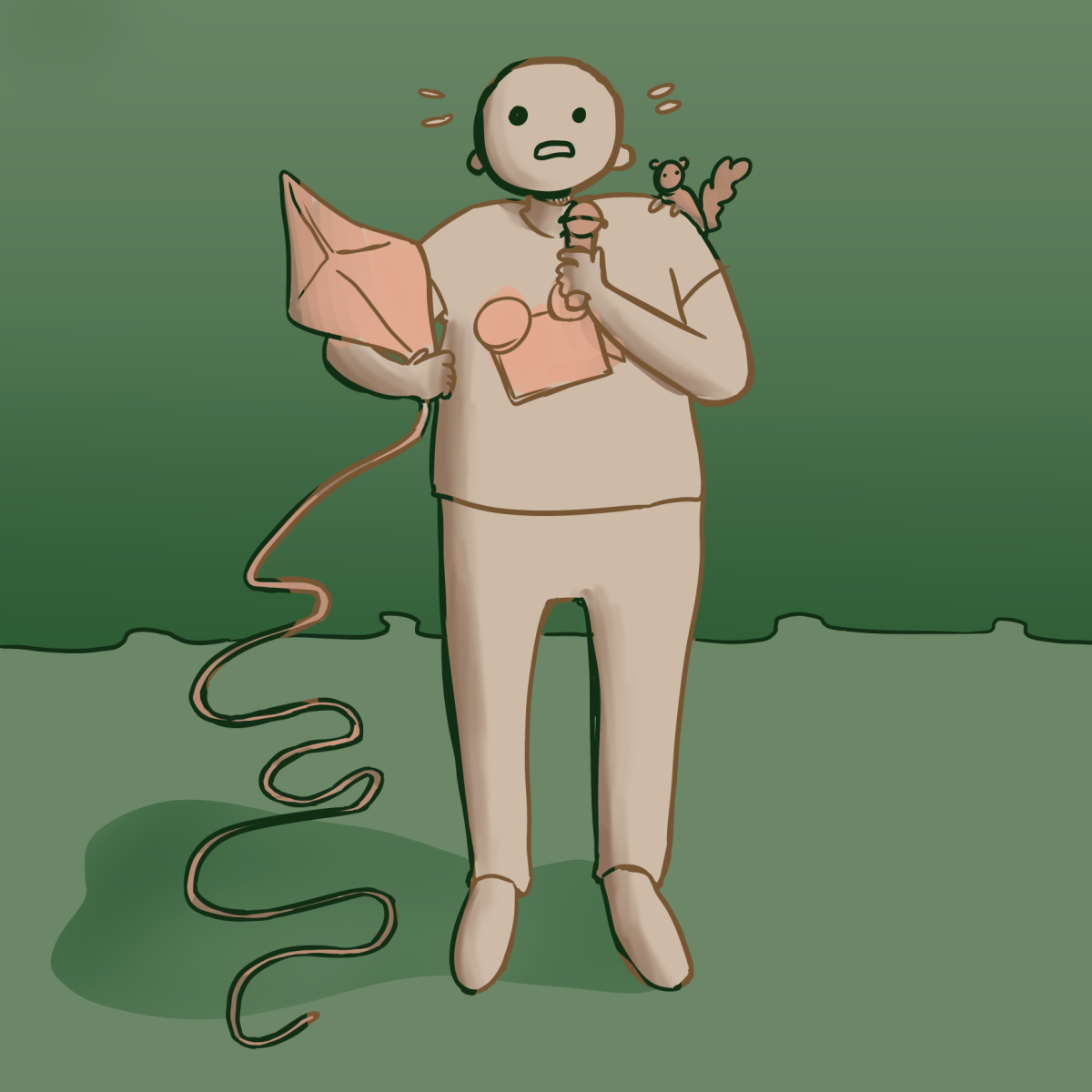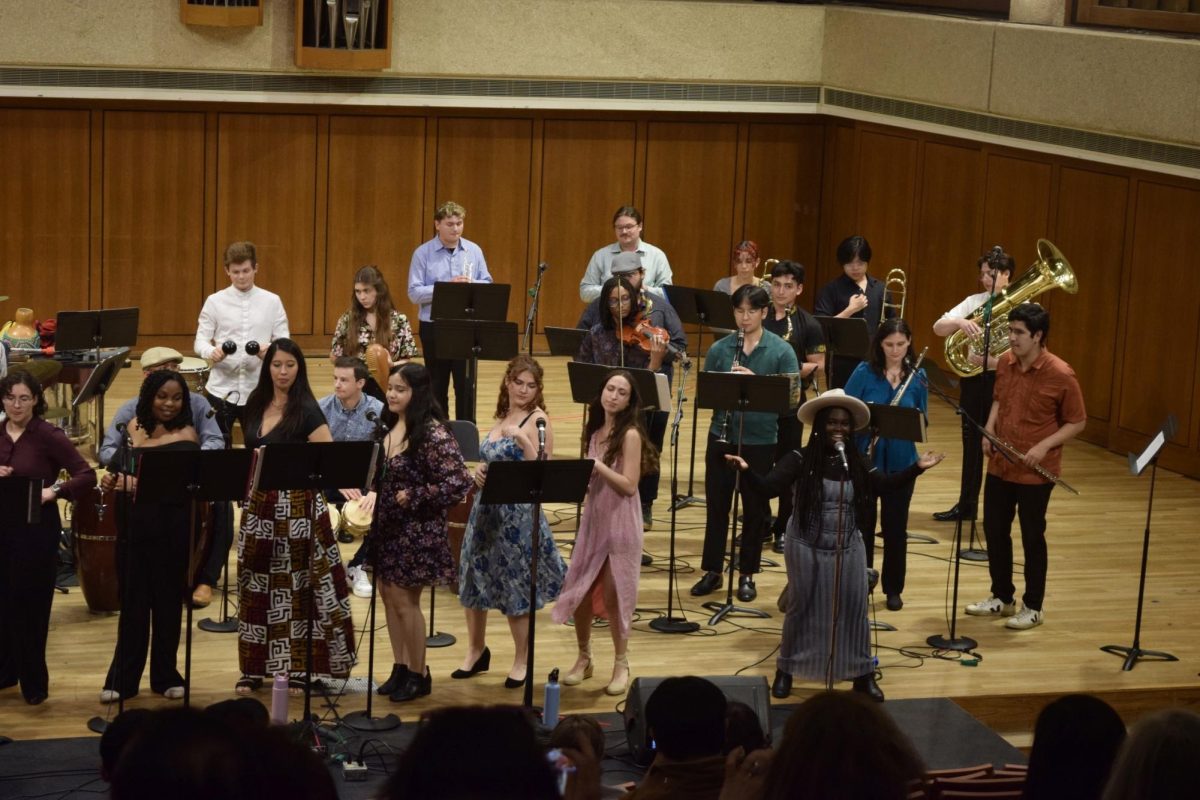After spending the fall semester in her home country, Tanzania, Loyce Gayo, African and African diaspora studies junior, stuffed her suitcase full of leftover cloth scraps and flew home ready to start a business.
Upon her return to UT for the spring semester, Gayo used the tribal-printed scraps of cloth to create fabric button earrings for her jewelry company, Tunda, which means fruit in Kiswahili — a language spoken in Tanzania. She said the pieces she sells are a celebration of her heritage.
“Fruits symbolize prosperity,” Gayo wrote on her page on Etsy, an online platform for selling handmade goods. “That often comes after hard work. This ideology is what remains central in the pieces I make.”
Gayo spent the first 12 years of her life in Tanzania before moving to Houston to live with her mother. When she decided to study abroad, Gayo said Tanzania was an obvious choice. After a semester of independent research in the Tanzanian city Dar es Salaam, Gayo sought out a seamstress in search of a piece of traditional Tanzanian clothing before leaving the country.
At the seamstress’, Gayo said she noticed a growing heap of cloth scraps in the corner of the room. The scraps were too small for the seamstress to use for clothing and would eventually be thrown away.
“When I saw [the heaps of unused cloth,] I saw an opportunity,“ Gayo said. “I thought, ‘This would be really dope for small jewelry.’”
Inspired by the colorful nature of the fabric, Gayo took the scraps the seamstress intended to toss out, brought them across the Atlantic and started making fabric button earrings at her bedroom desk.
“When I’m making my earrings, I just plug in and go at it,” Gayo said. “Everything else is no longer in my peripheral vision. It’s just me and the fabric.”
So far, Gayo has relied on word of mouth to market her products, but Gayo said the overwhelming demand and positive reception has her thinking about expanding Tunda’s customer base. She plans to expand her store on Etsy. From there, Gayo said she wants to add headbands, computer bags, cloth-based shoes and other types of jewelry to her line.
English senior Arati Warrier said she bought a pair of earrings from Gayo because they were affordable and unlike anything she found in stores.
“They are really simple because they are just a circle, but the print on each of them is so different because she gets the fabric from Tanzania,” Warrier said. “Each pair is unique and really adorable.”
Now that Gayo has found success selling her earrings in Austin, she said she needs a way of getting more scraps to continue her business. She intends to create a network of seamstresses in Tanzania to sell her their scraps.
“I want to go back home and show [the seamstresses] that saving these pieces of cloth can be lucrative for them as well,” Gayo said. “I can actually pay [the seamstresses] for giving me the scraps of cloth that they were going to throw away anyway.”
Gayo said she also plans to teach the Tanzanians how to repurpose the fabric to create products.
“There are so many different avenues [to solve the issue of wasted cloth],” Gayo said. “It’s just a matter of how I am going to position myself to make this advantageous for everybody involved.”



